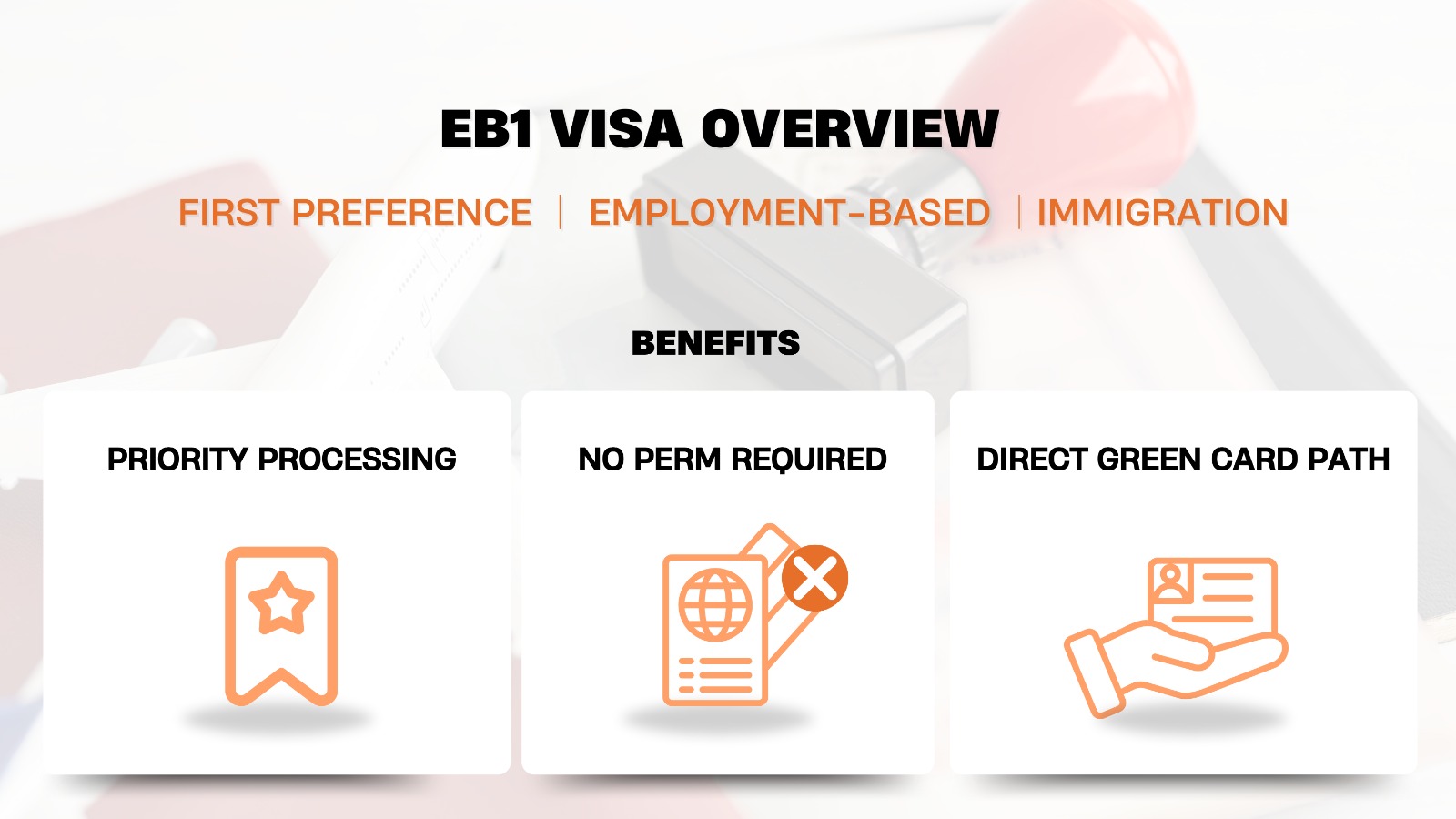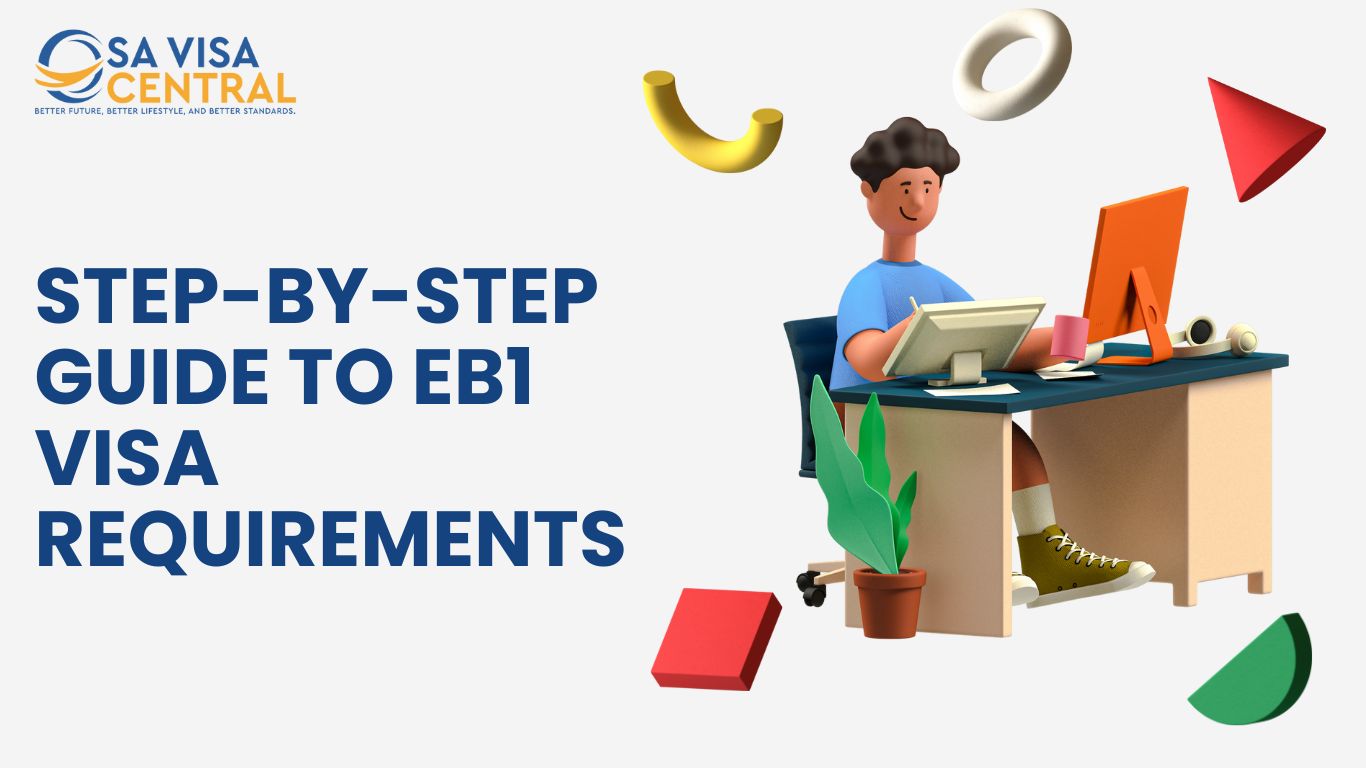The path to permanent residency in the United States through extraordinary ability at times seems an arduous one. The EB1 visa is more popularly recognized as the “Einstein Visa” or “Extraordinary Ability Green Card” and is the highest preference category for employment-based permanent residency in the United States. Essentially, let’s break down everything you need to know to be able to qualify for the prestigious EB1 visa category.
Table of Contents
What is an EB1 Visa?
EB1 visa is a first-preference employment-based immigration category for individuals with extraordinary ability in the sciences, arts, education, or athletics. In their statistics, USCIS has stated that it is considered one of the fastest ways to obtain a green card. EB1 applications usually do not even have the lengthy PERM labor certification to go through.

EB1 Visa: Three Subcategories
The EB1 category is divided into three distinct subcategories:
1. EB1-A: Extraordinary Ability
- For persons who possess extraordinary achievements in their field
- No job offer or employer sponsorship is required
- For purposes of assessment, they must meet at least 3 out of 10 criteria or be a recipient of an award of a major internationally recognized category.
2. EB1-B: Outstanding Researchers and Professors
- Offers international recognition in the academic field
- Three years of experience required
- Must have a job offer from a U.S. employer
3. EB1-C: Multinational Managers and Executives
- For managers and executives transferring from abroad to foreign offices
- Must have worked abroad for at least a year of the past three years
- Requires a U.S. employer with international presence
Also Read : Embarking on Your IELTS Journey: Finding the Best Institute in India
EB1 Visa: Key Requirements for EB1-A Category
In general, in order to qualify for EB1-A, one is required to show the extraordinary ability under one of these:
- A major internationally recognized award, like the Nobel Prize or Academy Award, or;
- At least three out of the following factors as stipulated by the Department of Labor:
- Evidence of lesser nationally or internationally recognized prizes/awards
- Membership in associations requiring outstanding achievements
- Published material about you in professional publications
- Participation as a judge of others’ work
- Original scientific, scholarly, or artistic contributions
- Authorship of scholarly articles
- Display of work at artistic exhibitions
- Performance in a leading role for distinguished organizations
- High salary compared to others in the field
- Commercial success in performing arts.
EB1 Visa: Documentation Requirements
Preparing a strong EB1 petition requires extensive documentation. According to immigration experts, you should include:
- Detailed curriculum vitae
- Letters of recommendation from subject-matter experts
- Publications and citations
- Press coverage
- Honors and awards
- Evidence of membership in national and international organizations
- Evidence of high salary and commercial success.
Common Challenges and Tips for Success
1. Documentation Quality
- Give more weight to quality than quantity.
- Check that every document is translated well.
- Ensure clear organization of the evidence.
2. Proving Extraordinary Ability
- Must show outstanding acclaim.
- Show impact within the field.
- Evidence for specific achievements.
3. Letter of Recommendation Strategy
- Letters from other independent experts.
- Include direct relations to contributions.
- Ensure the letter discusses eligibility standards.
Also Read : Top 10 Programs Offered at Victoria Junior College(VJC): Nurturing Singapore’s Future Leaders
Processing Times and Priority Dates
Processing times may vary; however, the EB1 visa is considered to be faster than other employment-based categories. According to recently published USCIS processing times, any petition for EB1 should take around 8-12 months for a response. However, for an additional fee, there is premium processing.
To Summarize
An EB1 visa is considered a prestigious way to get the status of a permanent resident in the U.S. for an internationally recognized person. Although the requirements are stiff, adequate preparation and documentation might increase the chances of achieving one. To consider getting assistance from an immigration attorney to ascertain your ambassadorship status and build a good application.
A proper EB1 petition is one that does more than the least number of such qualifications but factors in one substantial fact to give weight on a very clear basis in demonstrating your extraordinary ability in your discipline.








